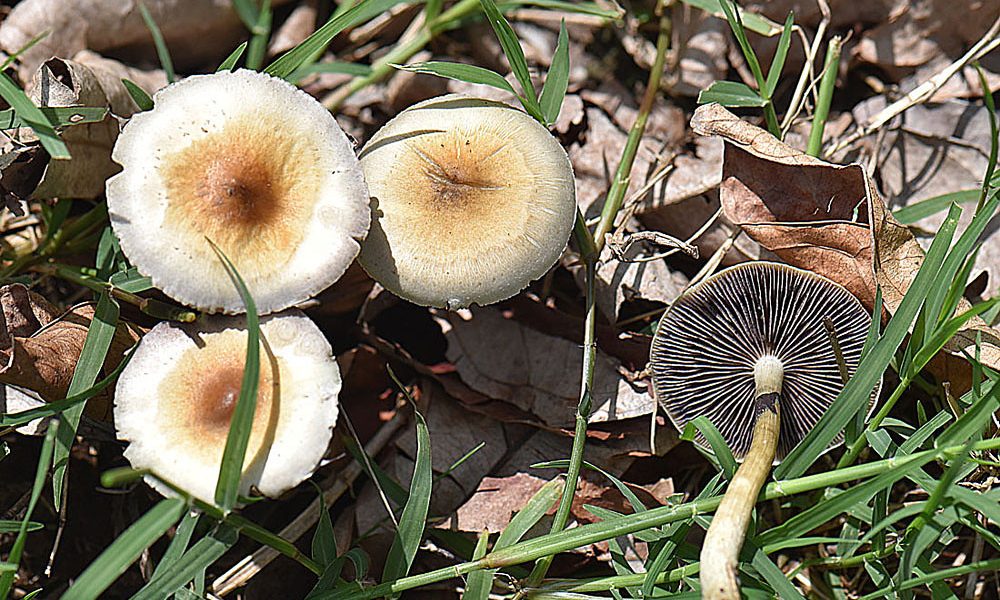Hawaii senators have approved a bill in committee to promote research into the therapeutic potential of psilocybin, MDMA and other alternative treatments for mental health conditions. And a House panel separately held a hearing of a measure to create a psilocybin-focused working group.
There’s been significant interest in psychedelics policy in the Aloha State this session, with a main focus on creating a research framework that could inform future legislation on providing regulated access to the substances.
The Senate Health and Human Services Committee unanimously approved an amended bill from Sen. Chris Lee (D) on Friday that would create a “beneficial treatments advisory council” that would be responsible for exploring state and federal regulations on certain psychedelics, in addition to reviewing scientific literature related to using them for mental health treatment.
It would also require the advisory council to develop a “long-term strategic plan to ensure the availability of therapeutic psilocybin, psilocybin-based products, and [MDMA] that are safe, accessible, and affordable for adults twenty—one years of age or older.”
The nine-member council would consist of five ex officio voting members—including the state attorney general and director of health—and four additional members with backgrounds in medicine, psychedelics advocacy and academia.
“The legislature finds that mental health conditions are treated in various ways, depending on the condition, and can include medication, therapy, and psychosocial services,” the bill text says, adding that psilocybin and MDMA have been designated as breakthrough therapies by the federal Food and Drug Administration (FDA).
“Research supports that the effectiveness of natural and alternative medicines and therapies, such as the use of MDMA, psilocybin, and other therapies, as being safe and effective ways to treat depression, post-traumatic stress disorder, addiction, end-of-life psychological distress, and other afflictions,” it continues.
Members of the Senate committee adopted a few amendments before passing the bill in a 5-0 vote. One key change would place the advisory council under the governor’s Office of Wellness and Resiliency, rather than the state Department of Health.
There were also technical changes made to the bill, and the chair said that they would be accepting additional recommendations that she did not specify.
The legislation will need to clear the Senate Ways & Means Committee before potentially advancing to the floor. There’s also a House companion version from Rep. Adrian Tam (D) that’s yet to receive committee consideration in that chamber.
Separately, the Senate Health and Human Services Committee recently passed separate psychedelics reform legislation, backed by the governor’s office, to create a state working group to study the therapeutic benefits of psilocybin.
On Friday, the House companion version of that legislation that’s being sponsored by Rep. Amy Perruso (D) was taken up by the House Health & Homelessness Committee, and the chair indicated that it would receive a vote this Wednesday.
The working group would be responsible for examining the “medicinal and therapeutic effects of psilocybin to treat conditions such as post traumatic stress disorder, depression, anxiety, and end-of-life psychological distress.”
Members would need to research the effectiveness of psilocybin therapies in Oregon and Colorado, where the psychedelic has been legalized for such purposes, and also develop a long-term plan to “ensure the safe availability and accessibility of affordable, therapeutic psilocybin and psilocybin-based products for adults twenty-one years of age or older.”
Separately, Sen. Stanley Chang (D) recently filed a Senate concurrent resolution that would similarly request a “Medicinal Psilocybin and Psilocin Working Group” to study local, state and federal laws on the entheogens, existing scientific literature on the therapeutic value of the fungi and possible the medical protocol for administering psilocybin.
That resolution has been referred to the Senate Health and Human Services Committee, but it hasn’t been scheduled for a hearing yet.
—
Marijuana Moment is tracking hundreds of cannabis, psychedelics and drug policy bills in state legislatures and Congress this year. Patreon supporters pledging at least $25/month get access to our interactive maps, charts and hearing calendar so they don’t miss any developments.
Learn more about our marijuana bill tracker and become a supporter on Patreon to get access.
—
Psychedelics bills have been introduced in more than a dozen states across the U.S. this legislative session, with some of the most recent developments taking place in Iowa, Missouri, New Hampshire and Utah.
Last week, the Virginia Senate approved a bill to establish a statewide psilocybin advisory board while moving the psychedelic to a lower schedule under state statute.
In a setback, Virginia lawmakers rejected another bill last month that would have allow people with serious mental health conditions to possess and use psilocybin mushrooms with a doctor’s recommendation.
Legislators in Connecticut, Massachusetts and Oklahoma have also filed bills to revise laws governing entheogenic plants and fungi.
New York Assemblymember Linda Rosenthal (D) pre-filed legislation late last month to legalize certain psychedelics like psilocybin and ibogaine for adults 21 and older. Gov. Kathy Hochul (D) also recently signed a bill mandating that the state immediately reschedule or deschedule Schedule I drugs like MDMA and psilocybin if they’re reclassified under federal law.
Bipartisan Washington State senators also recently unveiled a revised bill to legalize psilocybin services for adults.
There are also psychedelics reform efforts underway in Arizona, California, Colorado, Illinois, Minnesota, Montana, New Jersey and Oregon.
An analysis published in an American Medical Association journal last month concluded that a majority of states will legalize psychedelics by 2037, based on statistical modeling of policy trends.
Back in Hawaii, lawmakers have also recently filed bills to legalize marijuana in the state, and advocates are optimistic that the reform may finally be enacted with a new pro-legalization governor in office.
Washington’s Cannabis Enforcement Officers Face Stiffer Drug Use Restrictions Than Seattle Police
Photo courtesy of Dick Culbert.
Read the full article here









